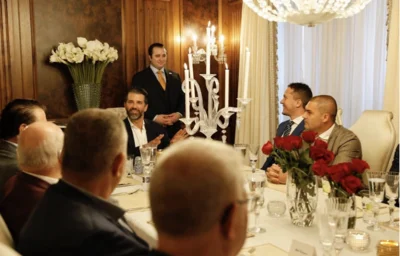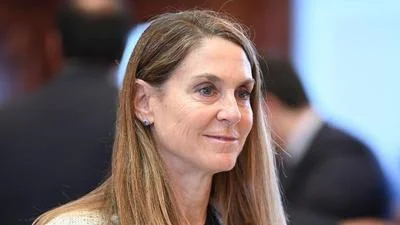SPRINGFIELD — Is Illinois headed toward a state workers strike?
That’s the question in Springfield, where Gov. Bruce Rauner’s administration on Friday asked the Illinois Labor Relations Board to determine if talks between the state and its biggest employee union have hit impasse.
If that board agrees that talks are at an impasse — a point where further progress isn’t possible — the Rauner administration might implement the terms of its final offer to the union, opening the possibility of a work stoppage.
The two sides are taking aggressive and opposite public stances, with the GOP and its supporters painting Rauner as the taxpayers’ watchdog and Democrats and the American Federation of State, County and Municipal Employees depicting the Winnetka Republican as a union buster.
The talks between the governor’s team and AFCME Council 31 negotiators apparently broke down late last week, when the union claimed Rauner’s team unilaterally declared an impasse and left without scheduling further meetings.
Rauner disagreed with that characterization, telling Illinois News Network his people simply asked whether the talks were at impasse because it was obvious progress wasn’t being made and hadn’t been made for dozens of sessions.
Questions for ILRB
On Friday, the governor’s office put the question of impasse to the ILRB for a decision.
Although talks began in January 2015, the contract between the state and AFSCME — which represents about 35,000 state workers — expired at the end of June. Employees have been largely working under the terms of their previous contract by way of “tolling agreements,” or deals to keep talking while both sides pledge not to force a work stoppage.
In a question-and-answer document prepared by the administration, it says it still has not unilaterally declared impasse but is honoring the tolling agreements struck with AFSCME.
?To that end, Rauner says, his action on Friday puts four key questions before the Labor Relations Board:
-- Whether the parties are at an impasse;
-- Whether they have been negotiating in good faith;
-- Whether the governor has presented a reasonable last, best, and final offer;
-- Whether that offer can be implemented.
A bitter fight
AFSCME disagreed with the governor’s actions.
“We reject the claim that the bargaining process is at an impasse,” AFSCME said in a written statement. “It’s regrettable and damaging to the public interest that the governor has chosen a confrontational path.??AFSCME said Rauner is making “‘my way or no way’ demands of state employees (that) are the obstacle to a fair agreement.”
As might be expected, the administration says otherwise. It cites a long list of what it says are concessions to the union, which the governor’s team argues is trying to maintain the status quo on terms and gain across-the-board raises the state can’t afford.
AFSCME says Rauner’s proposals would leave most members without raises for the life of a new contract, while Rauner counters that his proposals make raises reachable for employees with good attendance and without work-rule violations.
AFSCME also says proposed increases in health insurance costs coupled with a lack of scheduled raises mean its members will see their earnings go down. The Rauner team says Illinois state employees enjoy generous medical benefits at contribution levels well below those of comparable private-sector workers.
Rauner cites a need to reduce state spending as Illinois grapples with financials that included projected deficit spending at $4 billion to $5 billion for the current year, a stack of past-due bills of about $4.4 billion and growing, and more than $110 billion in unfunded pension obligations.
Sen. Christine Radogno, leader of the state Senate Republicans, said Rauner has shown himself “a true advocate for taxpayers at the negotiation table — something AFSCME may not be accustomed to — but it’s the undisputed reality of our financial crisis.”
Some Democrats, however, say the governor always has intended to force a strike and wants to bust AFSCME.
“Today, we see Gov. Rauner’s true intentions,” said State Rep. Rob Martwick, D-Chicago. “His rhetoric during his campaign for governor was about forcing a strike, and today it is clear that he’s been on this path all along.”??State Sen. Gary Forby, D-Benton, called Rauner’s decision to seek an impasse ruling “just another step in his plan to make Illinois a right-to-work state.”
State Rep. Ron Sandack, R-Downers Grove, said he thinks the picture is more complicated.
“The question is, ‘Has the pendulum swung too far (and) for too long in state employees’ favor?’” Sandack asked. “Now, I don’t know the answer to that definitively, but that has been part and parcel of the bargaining process between the governor’s staff and the representatives of AFSCME, and that bargaining has been going on for the better part of a year.”??“Sometimes people of goodwill just don’t see issues eye to eye,” Sandack said. “It just could be there are fundamental disagreements over what constitutes a fair wage and fair benefits (and) what the state can pay or what the state should pay.”
A fair referee?
The governor’s office used its Q&A document to address the question of whether the Labor Relations Board could be fair, as its members are gubernatorial appointees.
Rauner’s office said the majority of the board members (three of five) were originally appointed by Democratic Gov. Pat Quinn. More importantly, Rauner’s staff said, the governor is sending the impasse decision to the body designated in the state’s legally binding agreements with AFSCME.
Interest arbitration revived?
The spectre of impasse, the imposition of terms and a possible work stoppage initiated by either side may rekindle one of the hottest legislative issue of Rauner’s first year: whether an arbitrator should be injected into the mix by the General Assembly.
Last fall’s Senate Bill 1229 would have allowed mandatory arbitration should either the state or AFSCME declared a bargaining impasse?
Once that binding arbitration began, a strike or lockout would have been prohibited. In the end, a panel of arbitrators would pick from either the state’s or the union’s final offers on economic-interest items, such as pay and benefits.
The GOP painted the bill as an expensive, taxpayer-funded gift to AFSCME and said it would take a tax increase to fund a $1.6 billion or larger raise for some of the country’s best-paid state employees.
Democrats, on the other hand, argued the bill only gave unionized workers a chance at equal footing with Rauner.
An attempt by House Democrats to override Rauner’s veto of the bill fell three votes short in September but, as the administration noted on Friday, the contents of the bill still exist in House Bill 580.
The administration continues to call the concept bad policy and a union power play. ??“A bill to strip the governor of his constitutional authority is as unnecessary now as it was then,” Rauner’s staff wrote in Friday’s documents.
?“If AFSCME returns to the General Assembly to once more ask to strip this governor — and only this governor—of his power to negotiate with employees, then it will be as clear a signal as any that AFSCME has been acting in bad faith all along,” the administration said.
State Rep. Mike Smiddy was the House sponsor of SB 1229 and is the lead sponsor of HB 580.
Bringing HB 580 for a vote is “something we’re definitely taking a look at,” he said Friday.?
Gov. Rauner “said he would be staying at the bargaining table and negotiating in good faith and the bill was not necessary,” Smiddy said
“Well, we’ve come to find out maybe the bill was more necessary than most people first thought, because now we’re here a few months later and impasse is being declared by him and not members of the labor community.”
What’s next???
The governor’s office said it is now up to the Labor Relations Board to determine whether the administration’s plea belongs before it and, if so, whether a hearing before an administrative law judge is merited.
The process might take months, the administration said, and either party has the right of appeal to the board.
Additionally, AFSCME has indicated it is considering legal action.
The governor’s office said it will comply with the tolling agreement and will accept the ILRB’s directions, including on whether it can implement terms of a final offer. It also said, “There is not now and never has been a plan to lock out state employees.”
The union says it’s not walking away from the negotiating table and that it has “consistently responded to the administration’s demands with fair counter-proposals. We’re committed to continuing to do so, and we don’t want disruption of the public services we provide.”
Should a work stoppage such as a strike occur, essential workers including state prison guards would still be required to report to work under Illinois law.






 Alerts Sign-up
Alerts Sign-up